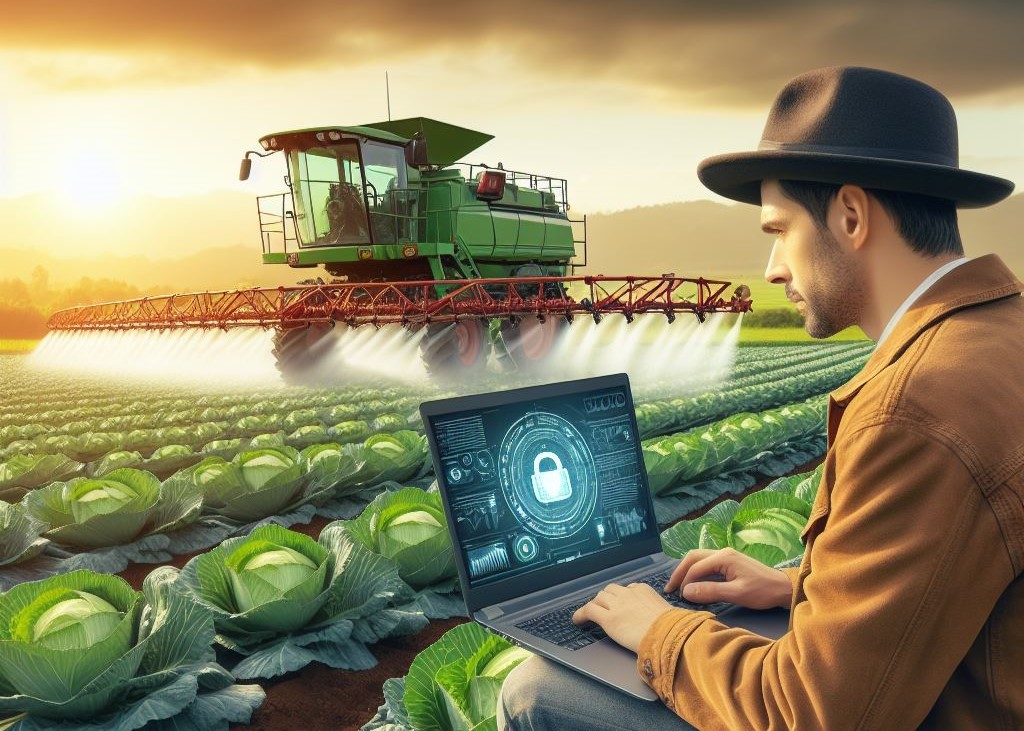Technology has improved productivity, efficiency and communication in every industry around the world, and agriculture is no exception. Once traditionally considered a low-tech industry, the increasing use of email, online monitoring tools, remote controls and payment systems, as well as the emergence of automated and smart farming equipment such as internet-connected tractors, have increased the level of digital threats for farmers.
As with many industries around the world, increased reliance on online connected technology means businesses are more vulnerable to cyber attacks. The use of smart devices such as sensors and analytics, IoT devices, robotics, drones and precision agriculture have transformed the agricultural environment for the better. These tools also collect large amounts of sensitive information that can be lucrative for criminals seeking financial gain.
In a report released in 2023, South Africa ranked fifth in the world on the list of countries most affected by cybercrime. Last July, a cyber attack disrupted Transnet's IT applications, halting the import and export of agricultural products. In a world that is increasingly reliant on digital technology, the agricultural sector's vulnerability to cyber attacks not only threatens individual agricultural businesses, but also poses risks to national food security, making strong cybersecurity measures crucial.
This threat is certainly not unique to South Africa. A University of Cambridge report found that smart agricultural technologies such as automated crop dusters and robotic harvesters can be hacked, making it increasingly likely. Cybercriminals see the global reliance on food and agriculture as an opportunity to target the industry for financial gain through ransomware or with cyberattacks aimed at social and economic disruption.
Ransomware attacks can be particularly vicious, using tactics such as wiping backups or threatening to publish sensitive information online to coerce organizations into paying the ransom with little risk of being caught or arrested.
Today, nearly every farm and agricultural enterprise uses some form of technology to run its business. For smaller enterprises, simple security solutions like automatic software updates, antivirus software, and multi-factor authentication are important. However, larger, more intensive farms with automated farming systems may require more complex security measures.
Agriculture in general has historically had lower levels of cybersecurity, as attacks are not considered to be as prevalent as the financial sector.

Carey Van Valaanderen, CEO of ESET South Africa;
There is a widespread belief among some in South Africa's farming community that their businesses are not an attractive target for cybercriminals, but given the vast amounts of data and associated financial transactions involved in many agricultural activities, a proactive approach to digital security in the face of sophisticated cyber threats is advisable.
Addressing cybersecurity challenges in agriculture can be complex, but there are steps agricultural companies can take to mitigate risk, limit the damage from existing attacks and position employees as the first line of defense, she added.
A necessary first step in strengthening your defenses is to identify where your critical infrastructure is vulnerable to attack. This will be different for every business. Some operations may need to invest more in cloud security and vulnerability discovery, while businesses may need to expand their cybersecurity efforts to include protecting against cyber threats in the form of phishing emails from companies they partner with or source from.
With approximately 88% of data breaches caused by employee error, a strong people risk management program with regular employee training and cybersecurity awareness is a critical component of any cybersecurity strategy.
Employees are also susceptible to cyber threats and need to be continually reminded of the risks that exist and how they may impact them and your agricultural business. While humans are prone to make mistakes, these mistakes are preventable, from not properly deleting data from a device to preventable errors such as clicking on a link in a phishing email.
Agriculture is vital to the global food industry and requires maximum protection against cyber attacks.
From basics like implementing a password manager and using multi-factor authentication to using cutting-edge security technologies to withstand attacks on large agricultural service companies, there is a lot that can be done to support farmers with the best cybersecurity strategies and solutions.


